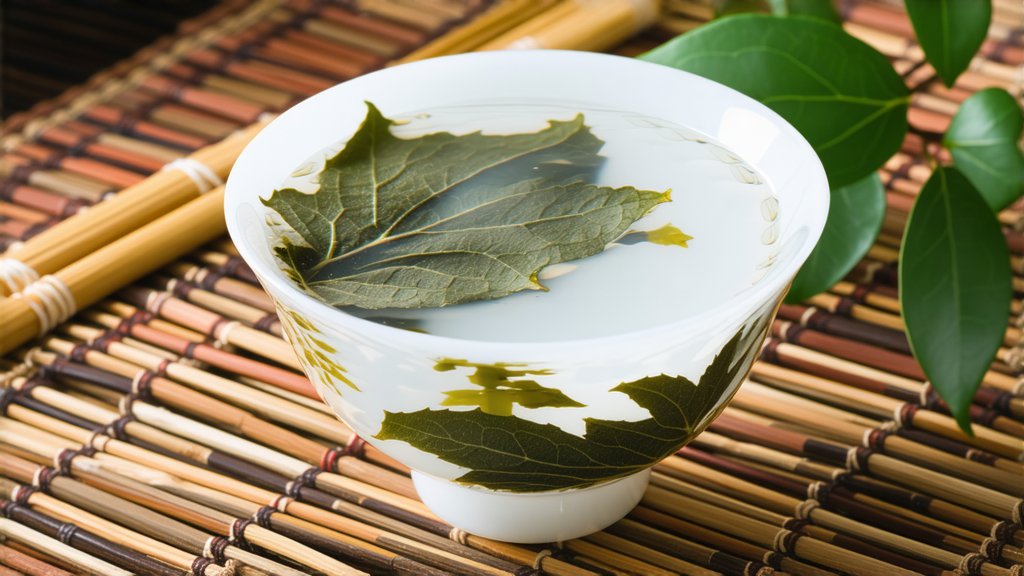
In the vast and diverse landscape of Chinese tea culture, few varieties encapsulate the essence of purity, elegance, and tradition as profoundly as Bai Mu Dan (白牡丹), or "White Peony." This exquisite white tea, hailing from the mountainous regions of Fujian Province, stands as a testament to centuries-old tea cultivation practices and the artistry of minimal intervention in tea production. For international readers eager to delve into the world of fine teas, Bai Mu Dan offers a captivating journey through history, variety, meticulous craftsmanship, and an unparalleled sensory experience.
A Historical Tapestry Woven with Tea Leaves
The origins of Bai Mu Dan can be traced back to the early Tang Dynasty (618-907 AD), during which time it was revered as a tribute tea exclusively reserved for imperial consumption. Legend has it that the name "Bai Mu Dan" was inspired by the tea's appearance—delicate, downy buds resembling peonies in bloom, set against the backdrop of pale green leaves. Over the centuries, this tea has evolved, yet it remains deeply rooted in its historical significance, continuing to be celebrated for its unique character and refined taste.
A Symphony of Varieties
Bai Mu Dan is crafted from specific tea plant cultivars grown in the Fuding and Zhenghe counties of Fujian Province. These areas boast ideal climatic conditions, with mist-covered mountains and fertile soils enriched by years of fallen leaves, creating an environment conducive to producing teas of exceptional quality. The primary varietal used for Bai Mu Dan is the Fuding Da Bai, known for its robust growth and ability to produce tender shoots with a high proportion of buds to leaves, essential for the tea's distinctive flavor profile.
Crafting Perfection: The Art of Minimal Processing
What sets Bai Mu Dan apart from other teas is its minimal processing, which preserves the natural flavors and nutrients inherent in the fresh leaves. The journey from leaf to cup involves several carefully executed steps:
-
Plucking: Only the youngest shoots, comprising a bud flanked by one or two newly unfolded leaves, are handpicked during the spring harvest. This selective plucking ensures the tea's premium quality.
-
Withering: The freshly picked leaves are spread out thinly on bamboo mats under the gentle sun or in well-ventilated rooms, allowing them to wither slowly. This process reduces moisture content while enhancing the leaves' natural sweetness and fragrance.
-
Fixation: Unlike green or oolong teas, Bai Mu Dan undergoes a mild fixation process, either through slight steaming or baking at low temperatures. This step halts oxidation while preserving the tea's delicate flavors and aromas.
-
Drying: Finally, the tea is dried thoroughly to remove any remaining moisture, ensuring its longevity and stability during storage and transportation.
Savoring the Essence: A Guide to Tasting Bai Mu Dan
To truly appreciate Bai Mu Dan, one must engage in a mindful tasting ritual that emphasizes its subtleties:
-
Visual Appreciation: Observe the dry leaves, noting their silvery-white fuzz and the contrast between the buds and leaves. Upon steeping, watch as they unfurl gracefully in the water, revealing a pale yellow liquor.
-
Aromatic Evaluation: Inhale the delicate aroma before sipping. Bai Mu Dan exudes a complex bouquet that blends floral notes with hints of herbaceousness and a whisper of sweet fruitiness.
-
Tasting: Take small sips, allowing the tea to coat your palate. Notice the initial sweetness, followed by a gentle astringency that fades into a clean, refreshing finish. The mouthfeel should be smooth and silky.
-
Aftertaste: Pay attention to the lingering aftertaste, which should evoke a sense of purity and tranquility, echoing the serene landscapes where Bai Mu Dan is cultivated.
In conclusion, Bai Mu Dan is more than just a beverage; it embodies the harmony between nature and human craftsmanship. Its history speaks volumes about China's enduring tea legacy, while its production showcases the meticulous attention to detail that defines true artistry in tea making. For those seeking a tea experience that transcends the ordinary, Bai Mu Dan offers a window into the soul of Chinese tea culture, inviting enthusiasts worldwide to partake in this timeless tradition.